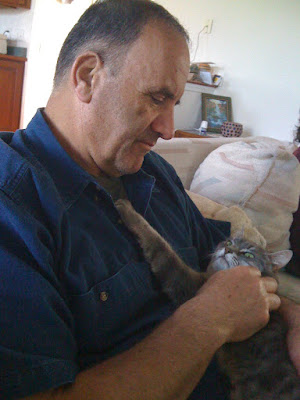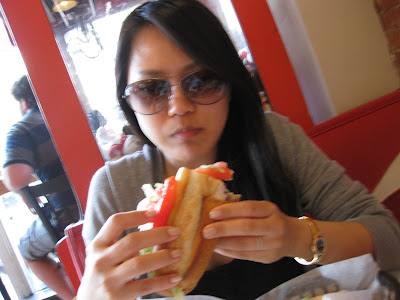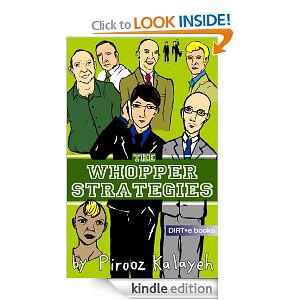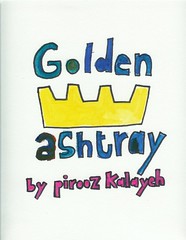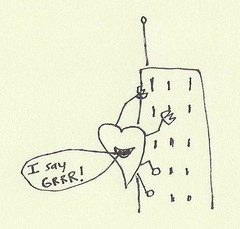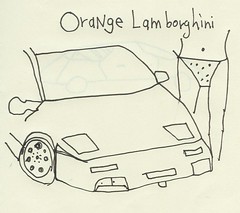
Recently, Brad Warner, a Buddhist practitioner, questioned whether a "less threatening" gay platform might help pass same-sex marriages into existence in the United States.
I have quoted an excerpt from his post to provide a reference point to the questions it raised within me:
Dig. You had parents come up on stage with their children saying, "I want to teach my little girl that if she wants to marry a girl when she grows up, she can." You had a pair of 14 year old girls saying they wanted Prop 8 overturned so they could be married when they grew up. You had high school boys pledging their love for one-another and dancing together. And you had Jerry Rubin, for God's sake! Jerry Rubin!
All of this is exactly what scares the opponents of same-sex marriage. If they wanted to inflame the hearts and minds of their supporters they could just have video taped that rally and put it on YouTube without comment. Maybe they did!
Now, I believe everyone should have the right to live as they want to as long as it doesn't harm anyone else. But what these folks are fighting for is a to be recognized by the society as a whole as OK, safe, not threatening the established order. You can't win that kind of recognition by giving your opponents precisely what scares them the most...

I don't know if having moderately gay presenters would make same-sex marriages any less threatening.
If a presenter at a prop 8 rally in support of same-sex marriage is moderately or overtly gay, he or she will still be at odds with most Americans who aren't willing to accept homosexuals--let alone the possibility for a same-sex marriage.
Maybe, we could identify the problem at all rallies--both for and against any issue--as the attitude and anger that comes with the acts of protesting. If an individual weren't so angry, and could approach a protest with a wider lens, they just might be exactly who they are without forcing an identity or position onto others.
I don't know if this is possible, but it does make me curious about successful protesters, such as Martin Luther King, Jr. and Mahatma Gandhi. Were they successful because of their non-violent approach? What created success for them? Were they less black or Indian? Or was it because they simply marched and protested without being in a state of aggression?
I don't know. I'm guessing there might be something there. I can say this because I am constantly in some kind of protest or another. I'll hear my wife, mom, friend--you name it--tell me some story, and I'll run with it, taking sides and trying to prove my point by pushing other people's buttons when I can't convince them I'm right--whether I'm aware I'm doing such a thing or not.
I think I'm better off when I don't take sides. I don't know, though. How can I not take sides in certain situations? Like when people are being discriminated because of sexual orientation?
I would say half the times I get upset are when I hear that someone is being hurt or discriminated in some way. It makes me angry immediately. I go right for trying to help. I might say something that doesn't help though. I might even go to a protest and wear a Prince Albert chained to a friend in a Pride festival. I don't know. It's possible.
I suppose I definitely want to throw up my anger on people when I feel like I am right. That probably makes other people uncomfortable or annoys them. I can see that, Brad. I don't know if it's a question of the level of one's exhibitionism as much as the attitude that brings such behavior about though.
Who knows? We could also start talking about how any level of exposure at a protest puts the actual exhibition within a more exaggerated context. Just think of a rock show. If you have Green Day playing at a protest rally, it'll be different than seeing them at a stadium. The climate will suddenly change based on the location. Suddenly, the songs will be more political and less fun. Couldn't this be the intention of some overtly gay presenters--just having fun? Could they simply just be acting as exactly the people they are? Could homosexuals be seen as more threatening to individuals who are not exposed to homosexuality simply because they are presenting at a public protest?
It's a tough call. All in all, I would say there is going to be discrimination whether an individual is "overtly gay", or trying to pass as someone who is "less gay". Since Proposition 8 is linked to this dilemma, I don't see same-sex marriages being allowed until homosexuality is accepted.
Having a platform where A-gay folks, like Ellen Degeneres, are presenters during campaigns might bring more votes to the Prop 8 cause, but it certainly won't bring all the homosexuals who are at this very moment "passing" as doctors, lawyers, milkmen, postal workers, investment bankers--and other jobs where a majority of "moderate" homosexuals might be found--into the forefront of the debate. They are simply busy hedging between saying anything or sitting on the sidelines (much like that recent Tom Cruise movie, "Vallkyrie", where Nazis are afraid to come out against Hitler, unless they know they're going to be supported). That's why you have more of the "overt" crowd representing at this point--folks are still too frightened.
It's simply going to take more discrimination and unfair laws passed--and people affected--before there are enough moderates to organize the homosexual population and its supporters into a legitimate political power--capable of raising votes, shaking hands, and kissing babies.
Who knows? Now could be the time for the beginning of change. What do you all think?










